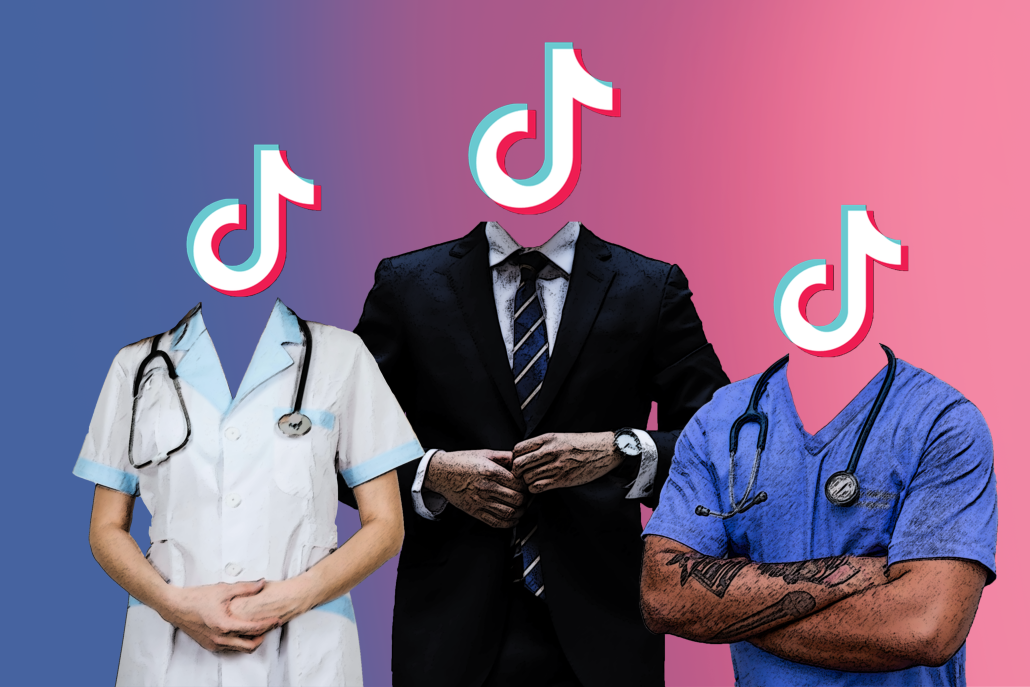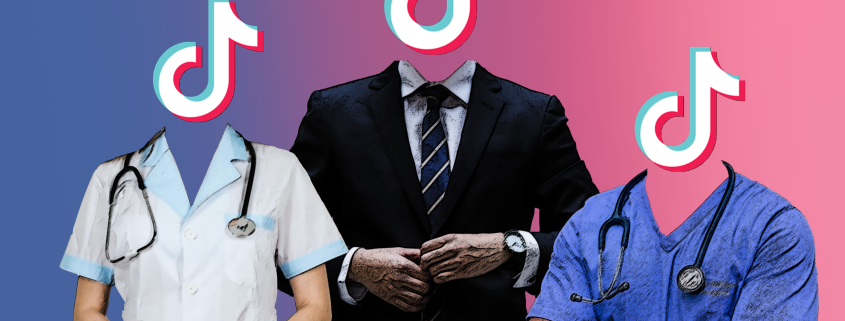TikTok threatens professionalism in law and medicine

A troubling trend has emerged that threatens the value of law and medical students’ university degrees: unverified TikTok “advice.”
The social media platform has emboldened a high volume of lawyers and medical experts, or those claiming to be, to join and post videos. A blog targeted toward lawyers, Justia Onward, even encourages lawyers to sign up for TikTok, calling it “A New Place for You to Grow Your Practice.” The blog additionally provides examples of lawyers on the platform who have earned thousands of followers from content creation.
Growing one’s legal practice without paying for advertisements seems perfect at first glance, and it is not surprising that many lawyers would turn to TikTok to gain notoriety. However, as explored by the University of Cincinnati Law Review, this movement presents real risks to TikTok.
A lawyer who makes comedy-based content may send the wrong impression about the legal world and the responsibilities that accompany the career. It becomes difficult to trust a lawyer when they turn to a social media platform to make short, humorous videos about their practice and, ultimately, lose a sense of professionalism and authority. Because TikTok allows anyone to join the platform, anyone can claim to be an attorney without verification. This gives users free rein to spread misinformation and affect the younger generation’s perception of an entire profession.
The same is true for medical professionals who join the app. Becoming a doctor is an arduous process and requires extensive training and knowledge; yet, anyone can type “Dr.” in their TikTok profile and give “medical” advice or information.
This creates a difficult job for actual medical professionals such as Savannah Sparks, whose TikTok content mainly comprises of correcting false claims. Encountering videos with false information on a daily basis, Sparks once had to correct the dangerous claims that a supplement could treat ADHD. As videos encouraging the use of falsified vaccination cards spread across the app, Sparks addressed the conspicuous dangers of doing so. Despite her attempts to correct misinformation, Sparks has faced online harassment and has even had her videos removed. TikTok claims it “prohibits misinformation that ‘can cause harm to an individual’s physical health,’” and, yet, videos of harmful advice persist on the app.
TikTok has a unique aspect that allows misinformation to spread: its audio feature. Audios have triggered the spread of misinformation on vaccines, creating an obstacle to both public health and the authority of actual medical professionals throughout the pandemic. When citizens have access to so much misinformation, it makes it more difficult for public health professionals to form a unifying and cohesive message. Rolling Stone describes such videos as people dancing to trending audios while spreading misinformation on coronavirus’ death toll or danger. Users can be seen dancing to Megan Thee Stallion while words on the screen perpetuate coronavirus conspiracies such as, “‘Bill Gates wants to chip us, track us and vax us / can’t convince us he’s not an assassin.’”
While other social media platforms like Twitter and Facebook spoke with lawmakers in the UK about fighting misinformation, TikTok did not participate, as it is not perceived as an app that disseminates serious information. The reality is that TikTok plays a vital role in spreading information to its young audience.
In a country where postgraduate degrees have a minimal effect on employment, TikTok lawyers and doctors are possibly threatening the depreciation of these degrees even more. If anyone can turn to a social media app to give legal or medical advice, regardless of its veracity, then users may no longer feel as strong of a need to visit a doctor or get legal counseling.
The coronavirus pandemic came at a time where social media is the norm. As described by the American Medical Association: “While more than two-thirds of Americans get their news from at least one social media outlet, that information does not go through the same vetting process as is done by professional news organizations.”
Doctors shared their concerns about the role of social media in public health during an AMA Special Meeting in June 2021, describing that, in a time when 25% of YouTube videos about the coronavirus are riddled with misinformation, they have had to correct false medical claims with their patients.
While social media platforms can feel like an escape from reality, their consequences on the real world are grave.

